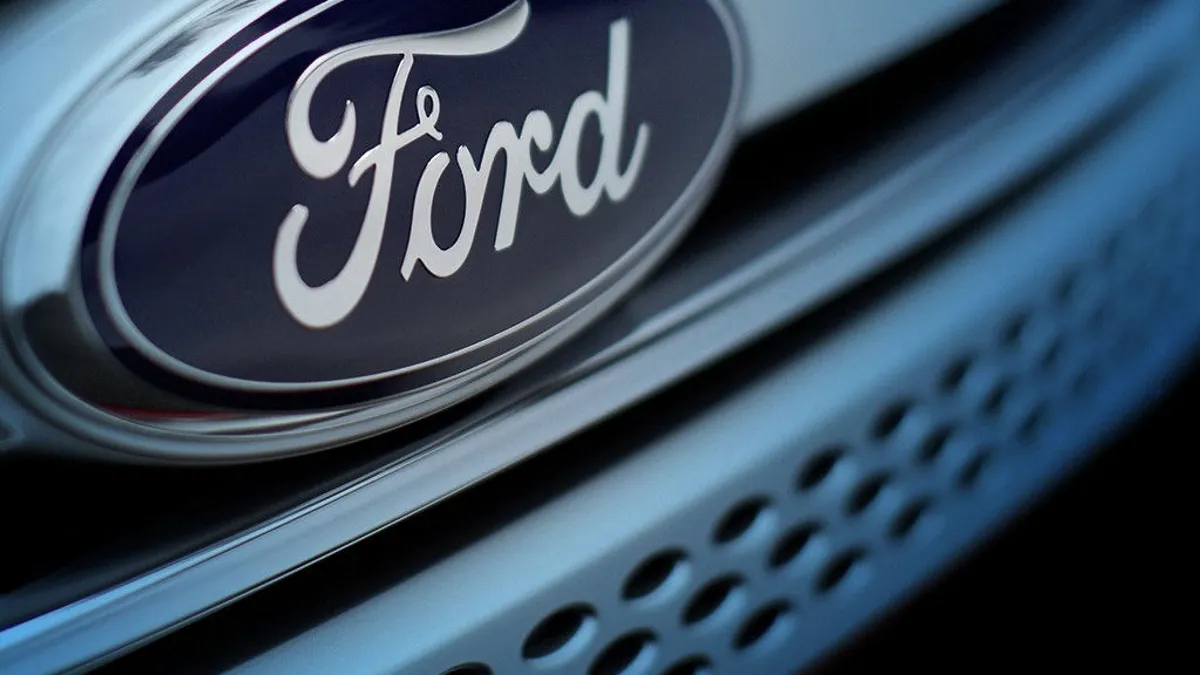Dive Brief:
- Ford and Alibaba have signed a three-year agreement to explore the ways technology impacts consumer purchases of cars, according to a press release from Ford.
- In the first phase of the agreement, the two companies will look at online car sales and digital solutions to the car buying process, in everything from pre-sales to test drives.
- The partnership allows Ford to expand its market presence in China, which Ford President and CEO Jim Hackett described as "one of the world’s largest and most dynamic digital markets."
Dive Insight:
I like to look at trends in the supply chain as the result of socioeconomic and cultural changes happening all around us. Add technology and shifting demographics and you have an interesting brew of opportunities in how we do business.
While there is a blurring of commercial and consumer supply chains, one trend is clear — the customer is the focus of just about everything.
Ford partnering with Alibaba on online car sales is yet one more example of these incremental changes to business that is interesting, but not necessarily earth shattering.
It is simply a result of changing economics and consumer needs, reflecting trends not only in car buying but in the overall use of cars as well.
Let’s take a quick trip back…preferably in my old 1973 Chevy Vega!
When I was in high school in New Jersey, a right of passage was getting your driver’s license the day you turned 17. I failed my first driving test (I still claim I was tricked!), and I had to feel the shame in my high school for almost three weeks until I successfully passed.
Cars were everything in those days, and seemingly everyone drove. Today, fewer young people are getting their driver’s licenses, ultimately creating a lower demand for cars from this particular demographic and probably the one behind it as well.
While there is a blurring of commercial and consumer supply chains, one trend is clear — the customer is the focus of just about everything.

Supply Chain Dive
Another change is the proliferation and acceptance of ride sharing services like Uber and Lyft, especially in urban and suburban areas. These services, supplementing or transcending traditional mass transit options, make it easy for fewer people to own cars.
Even children are using these providers to get to school or travel to after-school activities. Ride sharing services are also having an impact on airport revenue, with fewer travelers parking at the airport.
The traditional retail car dealers are also feeling the impact of changing attitudes towards cars. The increase of the cost of cars has driven many to favor leasing over buying, changing the relationship of the vehicle to the consumer.
Taking care of a car for the long term has been replaced by a relatively short-term transaction, changing the emotional attachment favored by many, and encouraged by the manufacturers themselves.
This leads us back to technology. We increasingly move online for our purchases, from clothes to laundry detergent and even higher value items. We look for houses online, take a virtual tour, double check the location on Google Maps, book an online appointment with an agent, and then return to the web to apply for the mortgage.
That traditional model has changed with lighting speed during the past several years.
The car buying process is also changing rapidly. The dealer is becoming the distribution and service center and the manufacturer and the consumer develop the primary relationship. At some point, the test drive will come to you as a self-driving car!
Auto manufacturers like Ford see the changes in economics, demographics, consumer behavior and technology and try to adapt, as evidenced by their partnership with Alibaba.
Enjoy the ride.













